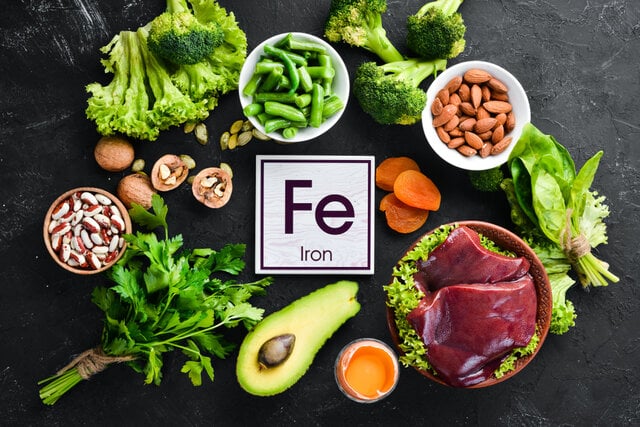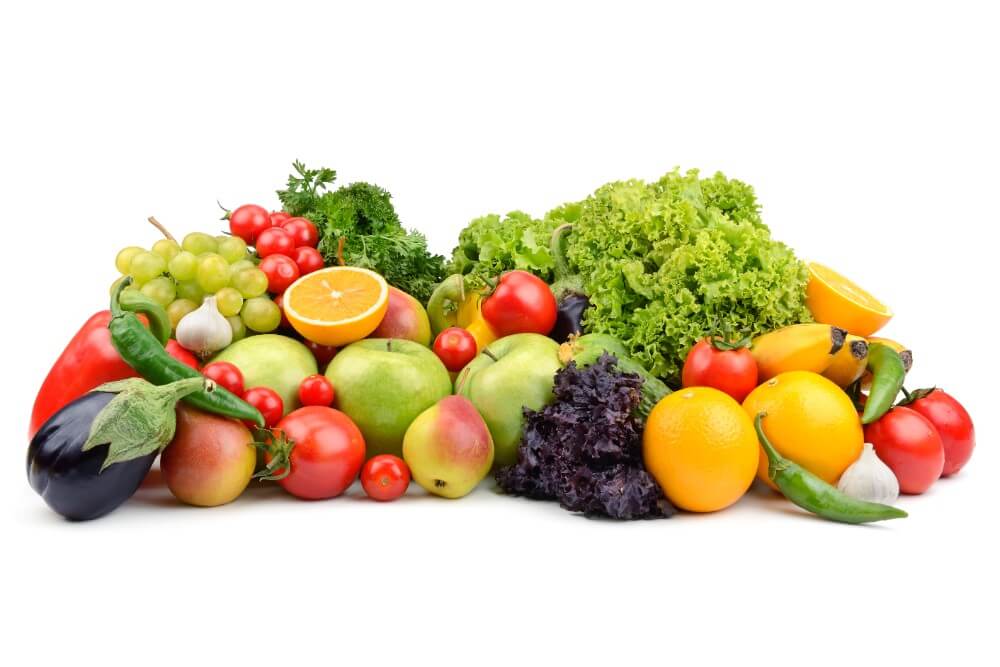Iron is one of the most important minerals your body needs to function properly. It plays a crucial role in maintaining energy levels, supporting oxygen transport, and promoting overall vitality. Despite its importance, iron deficiency is one of the most common nutritional deficiencies worldwide, affecting people of all ages and backgrounds.
From maintaining healthy red blood cells to supporting cognitive function, iron is essential for overall well-being. Let’s explore why this mineral is so vital, the signs of iron deficiency, and how iron supplements can help.
What is Iron and Why is It Important?

Iron is a trace mineral found in every cell of the body, and it serves several critical functions. The most well-known role of iron is its involvement in the production of hemoglobin, the protein in red blood cells responsible for carrying oxygen from the lungs to the rest of the body. Without enough iron, the body struggles to produce sufficient hemoglobin, leading to fatigue, weakness, and a range of health issues.
Iron is also essential for:
- Energy production: Iron helps generate the energy your body needs to perform daily activities by supporting cellular respiration.
- Cognitive function: Adequate iron levels are crucial for brain health, supporting memory, focus, and mental clarity.
- Immune function: Iron supports a healthy immune system by helping your body fight off infections.
Because iron is so essential for oxygen transport and energy production, even a slight deficiency can have noticeable effects on your overall well-being.
Types of Dietary Iron: Heme vs. Non-Heme

Iron comes in two forms in the diet: heme iron and non-heme iron. These types of iron differ in their sources and how easily the body can absorb them.
-
Heme iron: Found in animal-based foods like red meat, poultry, and fish, heme iron is more easily absorbed by the body. It accounts for about 40% of the iron found in animal products.
-
Non-heme iron: Found in plant-based foods like beans, lentils, spinach, and fortified cereals, non-heme iron is less easily absorbed than heme iron. It makes up the remaining 60% of the iron in animal products and all of the iron in plant foods.
To boost the absorption of non-heme iron, it’s beneficial to pair these foods with Vitamin C-rich sources like citrus fruits, tomatoes, or bell peppers. This combination can significantly enhance the body’s ability to absorb iron from plant-based foods.
Signs of Iron Deficiency

Iron deficiency is the most common cause of anemia, a condition where the body doesn’t have enough healthy red blood cells to carry oxygen to the tissues. This can result in a wide range of symptoms, some of which can be subtle and develop slowly over time.
Common signs of iron deficiency include:
-
Fatigue and weakness: Feeling tired and lacking energy is often the first sign of low iron levels, as your body isn’t getting enough oxygen to function optimally.
-
Pale skin: Without enough iron, your body can’t produce hemoglobin, leading to pale or dull skin, particularly noticeable around the eyes and face.
-
Shortness of breath: Iron-deficiency anemia can lead to shortness of breath, especially during physical activity, as your body struggles to get enough oxygen.
-
Dizziness and headaches: Low iron levels can affect brain function, leading to frequent headaches, dizziness, or lightheadedness.
-
Brittle nails and hair loss: Iron deficiency can weaken hair and nails, leading to hair loss and nails that are brittle or prone to breakage.
If you experience any of these symptoms, it’s important to consult a healthcare provider, as they may recommend a blood test to check your iron levels and discuss the need for supplementation.
Who Needs Iron Supplements?

While many people get enough iron through a balanced diet, certain groups are more susceptible to iron deficiency and may benefit from iron supplements:
-
Women of childbearing age: Women who menstruate lose blood every month, which can deplete iron levels over time. Pregnant women also have higher iron needs to support the growing fetus.
-
Vegetarians and vegans: Since non-heme iron from plant-based sources is less easily absorbed, vegetarians and vegans may struggle to get enough iron through diet alone.
-
Athletes: Endurance athletes, particularly runners, may require more iron due to the loss of iron through sweat and the increased demand on red blood cells during intense exercise.
-
Children and adolescents: During periods of rapid growth, such as childhood and adolescence, the body requires more iron to support healthy development.
-
People with chronic illnesses: Certain health conditions, such as chronic kidney disease or gastrointestinal disorders, can lead to lower iron levels and may require supplementation.
Recommended Japanese Iron Supplements

DHC Heme Iron:
Iron is a mineral with low absorption rates, similar to calcium, and requires proactive supplementation. Iron in food is categorized into heme iron, found in animal products like meat and fish, and non-heme iron, found in vegetables and grains. Generally, heme iron from animal sources is more easily absorbed by the body. This product contains heme iron and is enhanced with Vitamin B12 and folic acid, making it especially beneficial for women to effectively replenish iron, which is often lacking. It is recommended for those concerned about iron deficiency and growing adolescents.
UHA Iron Gummies:
This supplement offers a convenient way to meet your daily nutritional needs through tasty gummies. With just two gummies a day, you can effectively replenish essential nutrients, making it ideal for those who want to maintain beauty and health despite a busy lifestyle. Each serving contains 22mg of iron, meeting the Codex standards for nutritional reference values (based on Codex CAC/GL 2-1985, revised in 2017). It's a perfect option for individuals who need to supplement their iron intake.
Dear Natura Heme Iron:
Each capsule contains 3mg of heme iron, which is said to be 2-3 times more absorbable than non-heme iron. Heme iron is not inhibited by other food components like tannins or dietary fiber, allowing for efficient absorption.It also contains folic acid and Vitamin B12, which help in the formation of red blood cells. Each capsule provides the daily recommended intake of these nutrients, following nutritional labeling standards.Free from fragrances, colorants, and preservatives, this supplement is safe for daily use. It’s a convenient option for the whole family to supplement iron intake.
Choosing the Right Iron Supplement

Iron supplements come in various forms, and choosing the right one depends on your specific needs and preferences. Here are some common types of iron supplements:
-
Ferrous sulfate: This is one of the most widely used and affordable forms of iron. It’s highly effective at increasing iron levels, but it may cause gastrointestinal side effects like constipation or nausea in some people.
-
Ferrous gluconate: This form is gentler on the stomach and may be a better option for those who experience side effects with ferrous sulfate.
-
Ferrous fumarate: Another popular form, ferrous fumarate provides a high dose of iron and is generally well-tolerated.
-
Heme iron supplements: Derived from animal sources, heme iron supplements are more easily absorbed and may cause fewer side effects than non-heme iron supplements.
-
Iron bisglycinate: This form is often marketed as a "gentle" iron supplement, designed to minimize digestive discomfort while still providing effective iron absorption.
Potential Side Effects of Iron Supplements
While iron supplements are generally safe and effective, they can cause some side effects, especially if taken in high doses. The most common side effects include:
- Constipation
- Nausea
- Stomach cramps
If you experience these side effects, consider switching to a different form of iron, such as iron bisglycinate, or speak with a healthcare provider for guidance. It’s also important not to take more iron than recommended, as too much iron can lead to toxicity, which can be harmful to the liver and other organs.
Conclusion: The Importance of Iron for Health and Vitality
Iron is an essential nutrient that supports energy levels, oxygen transport, and overall health. For those who can’t get enough iron through diet alone, supplements offer a convenient and effective way to ensure the body has the iron it needs to function properly.
Whether you're managing iron-deficiency anemia, maintaining optimal health as an athlete, or supporting growth during pregnancy or adolescence, iron supplements can be a valuable part of your wellness routine. With the right iron supplement and proper guidance, you can keep your energy levels high and your body functioning at its best.




